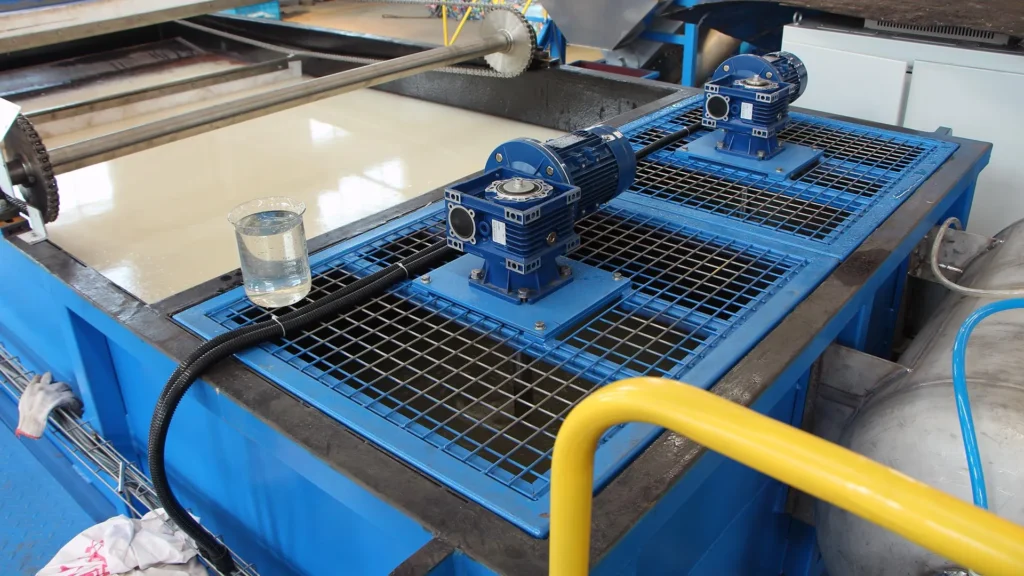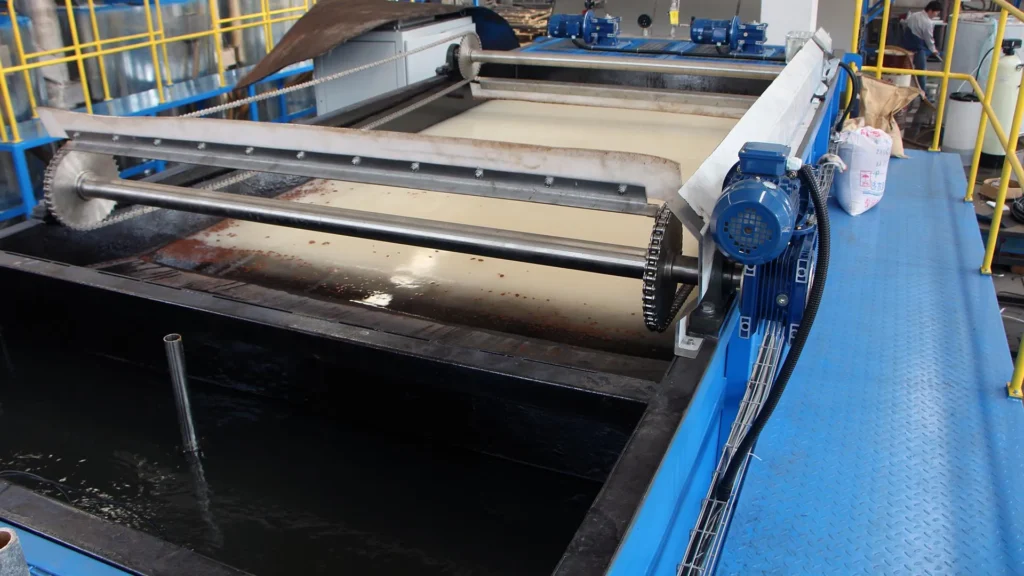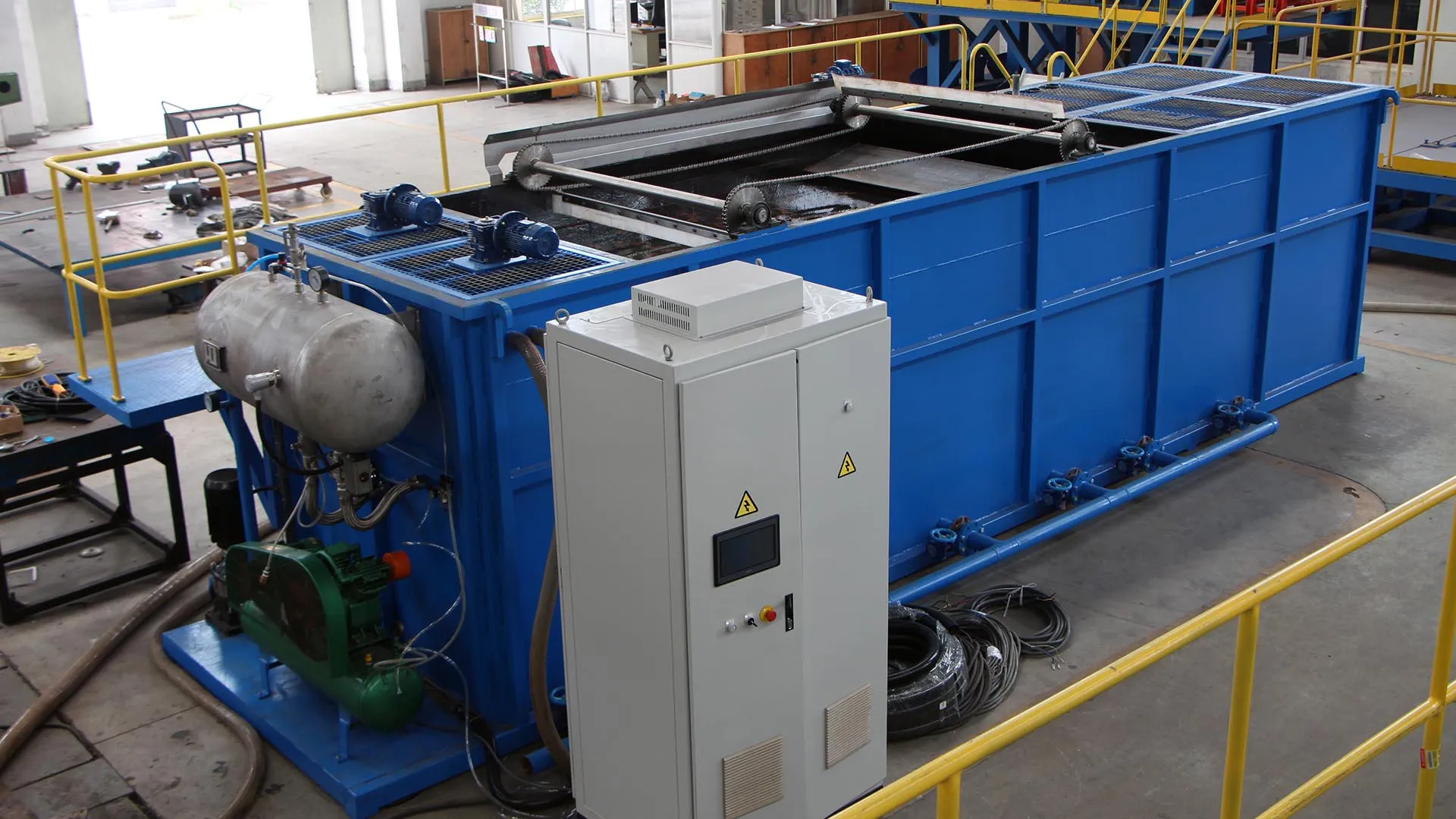Unlock Cleaner Water & Boost Your Bottom Line: DAF Systems for Plastic Recycling
Running a modern plastic recycling operation comes with its challenges, especially when it comes to managing wastewater. Are you looking for a smart, efficient way to treat your process water, cut costs, and enhance your facility’s sustainability? Meet the Dissolved Air Flotation (DAF) system – your partner in achieving cleaner operations.
DAF systems are a cornerstone technology for forward-thinking recyclers. They expertly tackle tough contaminants like total suspended solids (TSS), fats, oils, and grease (FOG), and biochemical oxygen demand (BOD). By purifying your wastewater, DAF doesn’t just protect the environment; it makes your entire recycling process more robust and cost-effective.
What Exactly is Dissolved Air Flotation (DAF)?
Think of DAF as a highly effective purification process for your wastewater. It works by dissolving air into the water under pressure, much like carbonating a soda. When this pressure is released in a special flotation tank, the air escapes as millions of microscopic bubbles.
These tiny bubbles act like elevators for suspended particles – oils, solids, microplastics, and other contaminants. They latch onto the pollutants and gently lift them to the surface, forming a layer that can be easily skimmed off. What’s left behind? Significantly clearer water, ready for responsible discharge or even reuse within your plant.

Why is DAF a Game-Changer for Plastic Recycling?
Plastic recycling facilities naturally generate wastewater containing a mix of residues – fine plastic particles, residual oils, labels, adhesives, and cleaning agents. Discharging this untreated water can cause environmental harm and lead to hefty disposal fees or regulatory fines.
Here’s where a DAF system shines:
- Environmental Compliance: Effectively removes pollutants, helping you meet or exceed discharge regulations.
- Cost Savings: Reduces reliance on municipal water by enabling water reuse, lowering water purchase and discharge costs.
- Operational Efficiency: Protects downstream equipment from fouling and ensures a more stable recycling process.
- Sustainability Boost: Demonstrates your commitment to eco-friendly practices, enhancing your brand reputation.
How DAF Works its Magic in Your Plant
The process is elegantly simple yet powerful. Wastewater enters the DAF system where compressed air is introduced and dissolved under pressure. This air-saturated water then flows into the main flotation tank where the pressure normalizes.
As the pressure drops, the dissolved air comes out of solution, forming those crucial microbubbles. These bubbles attach to suspended solids and oils, floating them to the top. A mechanical scraper or skimmer then gently removes this concentrated layer of contaminants.
Pro Tip: To give the process an extra boost, especially with very fine particles, we often recommend using coagulants like Poly Aluminium Chloride (PAC) or flocculants like Polyacrylamide (PAM). These safe additives help tiny particles clump together, making it even easier for the air bubbles to lift them.

Beyond Plastic Recycling: The Versatility of DAF
While DAF is invaluable for plastic recyclers, its effectiveness extends across many industries facing similar wastewater challenges. This versatility speaks to the robustness and adaptability of the technology:
- Pulp & Paper: Recovering valuable fibers and removing solids.
- Textiles (Printing & Dyeing): Separating stubborn dyes and pigments.
- Metal Finishing (Electroplating): Removing heavy metal ions.
- Industrial Manufacturing: Tackling oily wastewater streams.
- Leather Production (Tanneries): Managing fats, hair, and process chemicals.
- Chemical Processing: Separating various chemical contaminants.
- Food & Beverage: Excelling at removing fats, oils, and grease (FOG).
- Biological Treatment Plants: Assisting in sludge separation.
- Municipal Water Treatment: Removing algae and turbidity from surface water.
Technical Specifications at a Glance
We offer a range of DAF models to suit different flow rates and operational needs. Here’s a quick overview of our standard models (CE certification available):
| Model | Motor Power | Pump Flow | Capacity (Treatment) |
|---|---|---|---|
| APW-5 | 2.2 kW | 10 m³/h | 5 m³/h |
| APW-10 | 4.0 kW | 12 m³/h | 10 m³/h |
| APW-20 | 4.0 kW | 16 m³/h | 20 m³/h |
| APW-30 | 5.5 kW | 22 m³/h | 30 m³/h |
Need something bigger or tailored to specific requirements? We can custom-design larger and more powerful DAF systems. Just ask!
The Clear Benefits for Your Plastic Recycling Plant
- Slash Operational Costs: Significantly reduce freshwater intake and wastewater disposal fees by treating and reusing water effectively on-site.
- Boost Environmental Credentials: Minimize your facility’s environmental footprint, enhance community relations, and meet sustainability goals.
- Adaptable & Flexible: Proven technology capable of handling varying wastewater loads and contaminant types.
- Improve Process Water Quality: Ensure a consistent supply of cleaner water for your washing lines, leading to potentially higher quality recycled plastics.
Your Path to Cleaner Water Starts Here
Integrating a Dissolved Air Flotation (DAF) system isn’t just an equipment purchase; it’s a strategic investment in the efficiency, sustainability, and profitability of your plastic recycling operation. Ensure environmental responsibility while smartly managing your water resources and costs.
Peace of Mind: Warranty & Expert Support
We stand by our equipment. Every DAF system comes with a 1-year limited warranty. Need help with setup? Our experienced engineers can provide on-site installation assistance to ensure your system is up and running smoothly. We can also connect you with resources for ongoing maintenance and operational consulting.
Ready to Learn More? Inquire Now!
Get the latest pricing, lead times, and expert advice tailored to your specific needs. Send us a message using the form below, and let’s discuss how a DAF system can benefit your facility.



